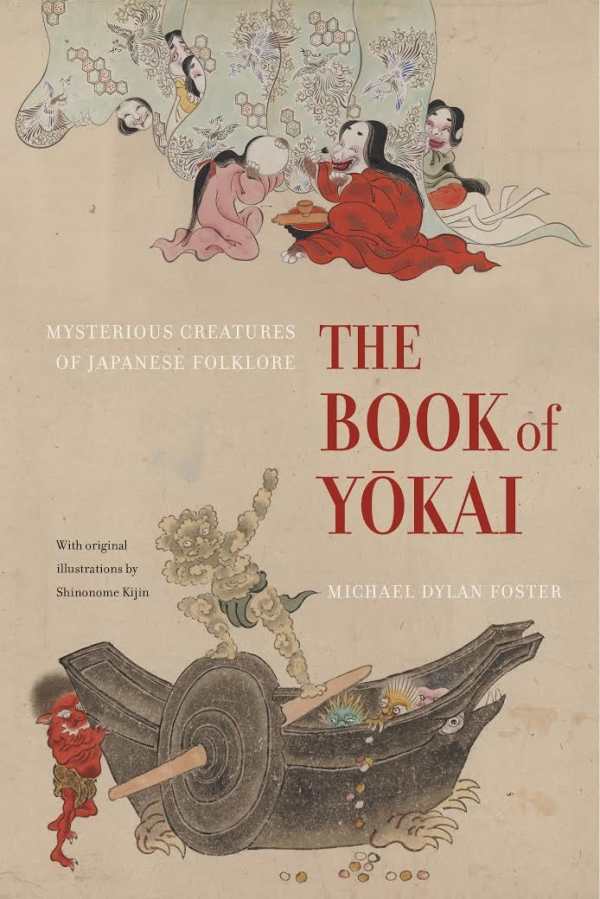The Book of Yōkai
Mysterious Creatures of Japanese Folklore
Research and enthusiasm merge to show how otherworldly creatures in Japanese folklore have enriched cultural experience.
For author and scholar Michael Dylan Foster, a little keepsake kappa doll kept on top of a refrigerator sparked a curious fascination with the world of Japanese yōkai. Kappa, best described as water goblins, can be rather nasty in their quest to drag humans and animals into the nearest river or pond. At other times, they can benevolently allow just the right amount of rain for a good harvest. In Foster’s case, the refrigerator kappa’s belonging to the mysterious yōkai realm has resulted in years of research and this engagingly narrated work, The Book of Yōkai.
Foster has studied extensively in Japan and is currently an associate professor of East Asian languages and cultures at Indiana University. He offers an appropriate academic devotion to his subject, along with the more personal element of someone who has a keen understanding of Japanese culture.
The Book of Yōkai provides a historical framework and various classifications of these intriguing creatures, spirits, and demons, such as the fierce oni, the aforementioned water-loving kappa, or the famed shape-shifting kitsune foxes that prowl about the countryside.
Rather than trying to scientifically disprove the yōkai phenomena, Foster, like the seeming majority of Japanese people, allows this other dimension to enrich both past and present. From late 18th-century “picture books” to today’s manga and anime, visual representations of the yōkai abound. Foster notes how the Edo-period card game yōkai karuta bears a notable similarity to the globally popular Pokémon. Yōkai fan club meetings are also frequent contemporary events, followed by toasts poured from yōkai-labeled bottles of sake. And we all might order some kappa maki at our favorite sushi restaurant, made with cucumbers to appease the kappa’s hunger for them.
Appealingly illustrated in black and white, The Book of Yōkai is an interesting cultural text highly recommended to Japanophiles or aficionados of the otherworldly—or to anyone who believes that the yōkai are clearly here to stay.
Reviewed by
Meg Nola
Disclosure: This article is not an endorsement, but a review. The publisher of this book provided free copies of the book to have their book reviewed by a professional reviewer. No fee was paid by the publisher for this review. Foreword Reviews only recommends books that we love. Foreword Magazine, Inc. is disclosing this in accordance with the Federal Trade Commission’s 16 CFR, Part 255.

